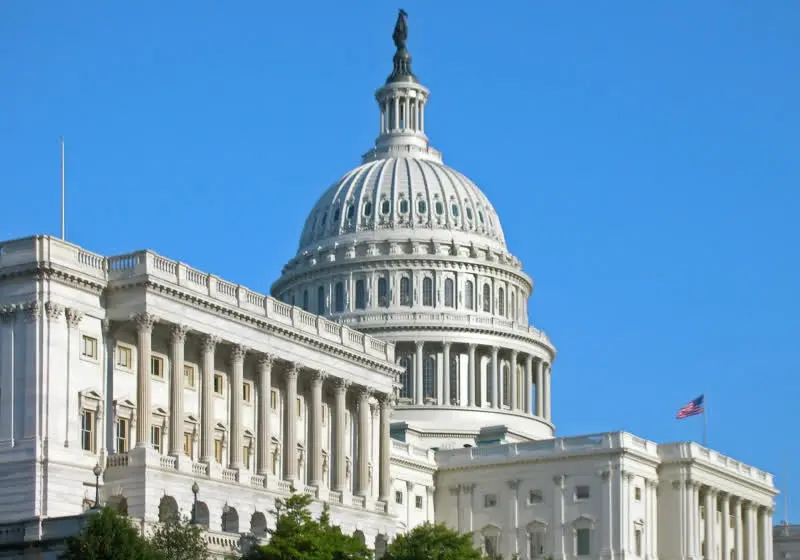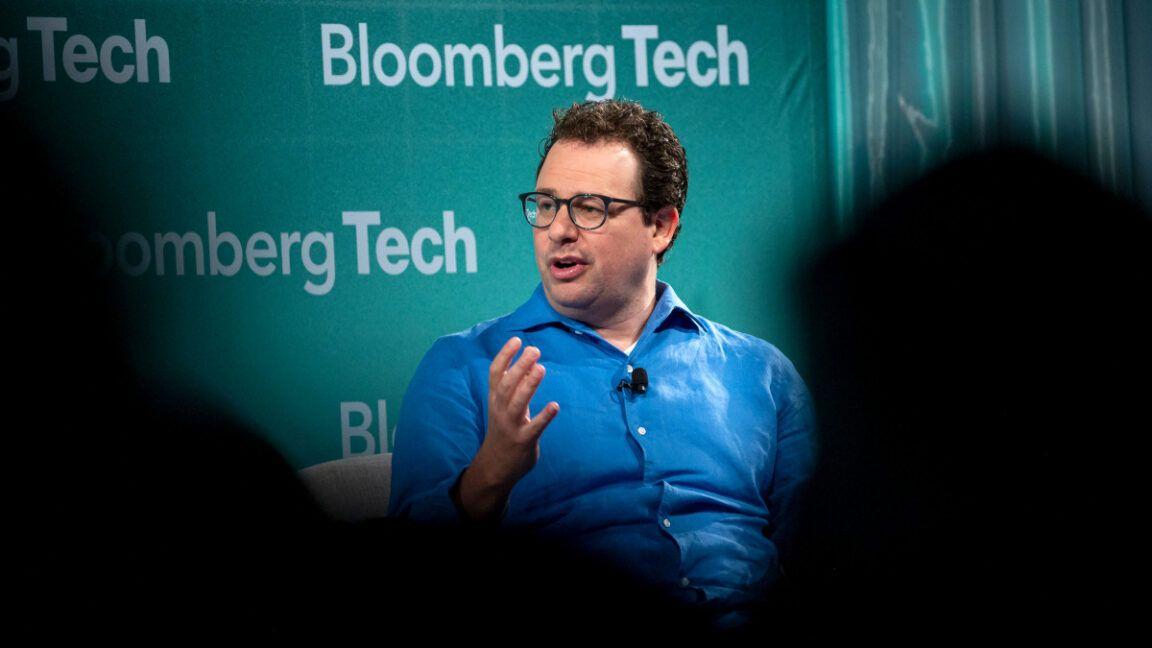Trump's 'Big Beautiful Bill' Proposes 10-Year Moratorium on State AI Regulation
3 Sources
3 Sources
[1]
There's a Lot of AI in Trump's 'Big Beautiful Bill': Here's What It Does and Why Elon Is Not a Fan
President Trump's controversial "Big Beautiful Bill" proposes a widespread AI-ification of the federal government, with billions in fresh funding for it. H.R. 1, which is actually called the One Big Beautiful Bill Act, contains about a dozen AI initiatives, some of which have specific budgets, listed in the table below. Some descriptions are vague, like $250 million "for the advancement of the artificial intelligence ecosystem" at the Defense Department. But the major proposals involving the tech are "reducing and recouping improper payments under Medicare," developing new capabilities at DoD, modernizing federal IT systems, and combatting the entry of narcotics across the border. Elon Musk, who appears to be on an image-rehab tour after running roughshod over the federal government for months, is not a fan of the bill. He told CBS News that he's "disappointed" because it increases the federal deficit substantially through tax cuts and other measures and "undermines" the work of the Department of Government Efficiency (DOGE), he says. "I think a bill can be big or it can be beautiful," Musk says. "I don't know if it can be both. My personal opinion." The Congressional Budget Office (CBO) estimates that the bill would increase the federal deficit by $3.8 trillion due to the tax cuts. Still, Musk's xAI and rivals like Google, Microsoft, and OpenAI stand to benefit if they secure any of these federal AI dollars. One section of the bill, for example, calls on the government "to contract with a vendor of artificial intelligence tools and with data scientists" to implement tools that would help catch "improper" Medicare payments. Another section calls for $500 million through 2035 to modernize federal IT systems, in part by deploying "commercial artificial intelligence." DOGE is already experimenting with AI tools. In March, it deployed an in-house AI chatbot and API at the General Services Administration. 10-Year Ban on AI Regulation If you asked yourself why Silicon Valley CEOs would hand over millions for President Trump's inauguration and sit behind him as he took the oath of office, look no further than a provision in this bill that proposes a 10-year moratorium on state-level AI regulation. As it's written, the bill says that no "state or political subdivision" may "enforce any law...regulating artificial intelligence models, artificial intelligence systems, or automated decision systems during the 10-year period beginning on the date of the enactment of this Act." The goal is to "remove legal impediments" and "facilitate the deployment" of AI. It aims to "streamline licensing, permitting, routing, zoning, procurement, or reporting procedures," and make sure regulation does not require AI models to have specific design, performance, or data requirements. Forty-eight states and Puerto Rico have introduced AI-related legislation, with 26 states adopting or enacting 75 new measures, according to the National Conference of State Legislatures. For example, North Dakota passed a law prohibiting the use of AI-powered robots for stalking and harassment. Arkansas passed a measure protecting copyright law. In California, Gov. Gavin Newsom vetoed a bill that would have required large companies to "perform basic safety testing on massively powerful AI models." Focusing on companies that have reached a certain size (many of which are based in the Golden States) could stifle innovation while leaving the threats presented by smaller models unaddressed, he said at the time. Newsom has been more open to security-related AI bills, one of which prompted a lawsuit from Musk. Jake Karr, Acting Director of the Technology Law & Policy Clinic at NYU's School of Law, tells the nonprofit Tech Policy Press that the moratorium is "overbroad and vague." He concedes that "much of the state-level tech legislation over the past few years has been rash and misguided," but argues that the feds "should not get in the way of states earnestly trying to make sense of emerging technologies and protect their residents." Matthew U. Scherer, senior policy counsel at the Center for Democracy & Technology, has a more dire warning: "The moratorium is so sweeping that it's hard to imagine how any law that touches on AI or automated decision-making in any way could escape it." Republicans argue that a patchwork of state-level AI laws are hard for tech companies to navigate, particularly startups with limited resources. "Imagine how difficult it would be for a federal agency that operates in all 50 states to have to navigate this labyrinth of regulation when we potentially have 50 different states going 50 different directions on the topic of AI regulation," Rep. Jay Obernolte, a California Republican, said at a recent hearing, according to The Hill. "This is exactly the same circumstances that we are putting private industry in as they attempt to deploy AI." What's Next for the 'Big, Beautiful Bill'? The House approved H.R. 1 on May 22 by a vote of 215-214. Two deficit-conscious Republicans joined Democrats in opposing the bill. It now moves to the Senate, where it faces an uphill battle, particularly among moderate Republicans concerned about Medicaid cuts. The effort may also run into some procedural hiccups. Sen. John Cornyn, a Texas Republican, tells the AP that the AI moratorium may run afoul of the Byrd Rule, which holds that budget reconciliation bills should be focused on funding allocations, not specific policies. Any big changes made by the Senate would then need to be reconsidered by the House before it's sent to Trump for his signature. This week, amid Musk's pushback, Trump noted that the bill has "got a way to go."
[2]
"One Big Beautiful Bill": House backs Trump plan to freeze state AI laws for a decade
The big picture: The US House of Representatives narrowly approved President Donald Trump's "One Big Beautiful Bill," clearing the path for sweeping changes to the country's tax code and immigration policy. The bill also contains a contentious clause that blocks states from regulating artificial intelligence for the next 10 years. The moratorium applies not only to AI models but also to any products or services integrating AI, effectively banning and overriding state regulations in those areas. The restriction affects several critical sectors, including automotive, consumer IoT, social media, medical equipment, and more. Critics argue the clause could grant rogue developers a free pass to build AI systems that harm public safety, security, and well-being. They also contend that the bill undermines the federal system by restricting states from creating and enforcing regulations and impeding their right to self-governance. Some experts - and even Republican senators - warn that the bill could jeopardize national security and economic stability in ways not fully understood. Senators Marsha Blackburn of Tennessee and Josh Hawley of Missouri argue it will make it easier to create deepfakes and derail bipartisan efforts to confront AI-related threats. Non-profit advocacy groups, like the Electronic Frontier Foundation, have raised strong objections to the bill, calling it Big Tech's effort to dismantle guardrails around artificial intelligence. The group also urged Congress to reject what it described as a damaging proposal. Supporters of the bill argue that the moratorium is essential for US companies to compete with state-backed Chinese tech firms. They contend that regulations hinder innovation and could severely weaken America's chances of leading the world in artificial intelligence. Backers also describe the One Big Beautiful Bill as a "generational opportunity" to implement the long-term changes voters demanded. The bill still faces Senate approval before President Trump can sign it into law. However, political commentators across the spectrum believe Trump may struggle to convince Senators that limiting state-level legislation and infringing state sovereignty is the right approach. The outcome could have lasting implications for balancing power between federal and state governments, shaping how the country regulates emerging technologies.
[3]
'Beautiful Bill' moots decade-long pause on AI-related state laws
US president Donald Trump's "One Big Beautiful Bill", passed by the House of Representatives on Thursday, brought in a whole host of changes, from tax breaks and immigration crackdowns to tweaking welfare programmes. But it also had a significant AI-related provision snuck in - a 10-year moratorium on AI-related state legislations. If the bill is now passed by the Senate and approved by the president, it would enact one of the most consequential federal tech policy actions in years. The provision has sparked a debate between those opposing a "patchwork" of state laws and those calling to address harms in the absence of a federal AI law. The bill talks about how the commerce department may use funds to leverage AI for operational efficiency and cybersecurity. It then adds that no state or political subdivision may enforce any regulations on AI models or automated decision systems for a 10-year period after enactment of the bill. This does not apply to regulations that are aimed at removing legal impediments to AI deployment and enabling adoption and procurement of the technology, it says. It also does not curb regulations that don't impose any substantive design, performance, data-handling, documentation, civil liabilities, taxation or other requirements on AI systems. The moratorium is seen as benefiting the technology industry, many of whom have called for a regulatory environment that fosters freedom to innovate. The industry appreciates the government's "recognition that a patchwork of state laws on AI could jeopardise national AI priorities," said Jason Oxman, president and CEO of tech industry body ITI Council, in a letter to a subcommittee involved in the legislation on Wednesday. "The technology industry is increasingly concerned about the growing number of state legislative proposals to regulate AI," Oxman wrote, adding that competing state regulations could hamper efficiency gains possible from greater government adoption of AI. "There is a risk that a tidal wave of state legislative activity could undermine our shared goals of American technological preeminence." ITI, which counts Microsoft, Google, IBM, Accenture, Adobe, Meta and OpenAI among its members, advocated for a unified, risk-based standard for AI development and deployment that avoids conflicting state-level regulation. Tech giant Google in a March submission regarding the US government's "AI Action Plan" which aims to strengthen US leadership in AI, said that it should "preempt a chaotic patchwork of state-level rules on frontier AI development." ChatGPT-maker OpenAI proposed a "holistic approach" that enables voluntary partnership between the federal government and the private sector, without American AI companies having to comply with "overly burdensome state laws". Analysts say that the bill reflects the administration's deregulatory approach. On the other hand, in the run up to this bill being introduced, a group of 40 attorney generals of states like California, Colorado, Washington, New Jersey, and others wrote to US Congress officials opposing the moratorium. "Such a broad moratorium would be sweeping and wholly destructive of reasonable state efforts to prevent known harms associated with AI," they said. In contrast to the EU, which has an overarching AI law, the US which has no federal AI law was seen as having a "light-touch" approach. But in reality, AI-related bills in US states have been ballooning. A report by tech industry body BSA, the Software Alliance, showed that in 2024, nearly 700 AI-related bills were introduced across 45 US states. About 113 have been enacted. In 2023, there were under 200 such bills in states. The momentum was expected to carry into 2025 as well. Colorado was the first to pass comprehensive legislation to address high-risk uses of AI. States like California and Tennessee have enacted targeted reforms to address specific issues such as data provenance and digital replicas. Forty-three states considered legislation to address issues around AI and deepfakes. Of over 300 such pieces of legislation introduced, 71 were enacted into law. In India, neither central nor state governments have introduced AI legislation. The government expects existing laws and sectoral regulations to be sufficient in tackling harms. Officials have said that AI legislation may be introduced in future if the need arises.
Share
Share
Copy Link
The US House of Representatives narrowly passed President Trump's "One Big Beautiful Bill," which includes a controversial 10-year ban on state-level AI regulation, sparking debate over innovation, states' rights, and potential risks.
Trump's 'Big Beautiful Bill' Passes House with Controversial AI Provisions
The US House of Representatives has narrowly approved President Donald Trump's "One Big Beautiful Bill Act" (H.R. 1) by a vote of 215-214
1
. This comprehensive legislation, which aims to overhaul various aspects of federal policy, includes significant provisions related to artificial intelligence (AI) that have sparked intense debate among lawmakers, tech industry leaders, and advocacy groups.
Source: TechSpot
Key AI Initiatives and Funding
The bill proposes several AI-related initiatives with substantial funding allocations:
- $250 million for AI ecosystem advancement at the Department of Defense
- AI implementation to reduce improper Medicare payments
- $500 million through 2035 for federal IT system modernization using AI
- AI deployment for combating narcotics entry across borders
1
These initiatives reflect a push towards widespread AI adoption in federal operations, with the potential to significantly impact various sectors of government.
Controversial 10-Year Moratorium on State AI Regulation
At the heart of the controversy is a provision that would impose a 10-year moratorium on state-level AI regulation
1
2
. This clause prohibits states and political subdivisions from enforcing any laws regulating AI models, systems, or automated decision systems during this period3
.Supporters argue that this moratorium is necessary to:
- Prevent a patchwork of conflicting state regulations
- Foster innovation and maintain US competitiveness in AI
- Streamline AI deployment across various sectors
1
3
Critics, however, raise several concerns:
- Potential risks to public safety and well-being
- Undermining of states' rights to self-governance
- Possible national security threats from unregulated AI development
2
Industry Reactions and Implications
The tech industry has largely supported the bill's approach to AI regulation. Jason Oxman, president and CEO of the ITI Council, expressed appreciation for the government's recognition that a patchwork of state laws could jeopardize national AI priorities
3
. Companies like Google and OpenAI have advocated for a unified, risk-based standard for AI development and deployment3
.However, some notable figures in the tech world have expressed reservations. Elon Musk, for instance, criticized the bill for increasing the federal deficit and potentially undermining the work of the Department of Government Efficiency (DOGE)
1
.Related Stories
Opposition and Legal Challenges
A group of 40 state attorneys general has voiced strong opposition to the moratorium, arguing that it would be "wholly destructive of reasonable state efforts to prevent known harms associated with AI"
3
. Legal experts have also raised concerns about the broad and vague nature of the moratorium, suggesting it could have far-reaching and unintended consequences1
.The Road Ahead
While the bill has passed the House, it faces significant challenges in the Senate. Moderate Republicans have expressed concerns about Medicaid cuts, and procedural issues may arise due to the Byrd Rule, which limits the scope of budget reconciliation bills
1
.
Source: PC Magazine
As the debate continues, the outcome of this legislation could have profound implications for the future of AI regulation in the United States, potentially reshaping the balance of power between federal and state governments in technology policy
2
.References
Summarized by
Navi
[1]
Related Stories
GOP Proposes 10-Year Ban on State AI Regulation in Budget Bill
13 May 2025•Policy and Regulation

Proposed Moratorium on State AI Regulations Sparks Debate in US Congress
22 May 2025•Policy and Regulation

Republican Push for Federal AI Regulation Moratorium Faces Opposition and Controversy
18 Jun 2025•Policy and Regulation

Recent Highlights
1
Pentagon threatens Anthropic with Defense Production Act over AI military use restrictions
Policy and Regulation

2
Google Gemini 3.1 Pro doubles reasoning score, beats rivals in key AI benchmarks
Technology

3
Anthropic accuses Chinese AI labs of stealing Claude through 24,000 fake accounts
Policy and Regulation





